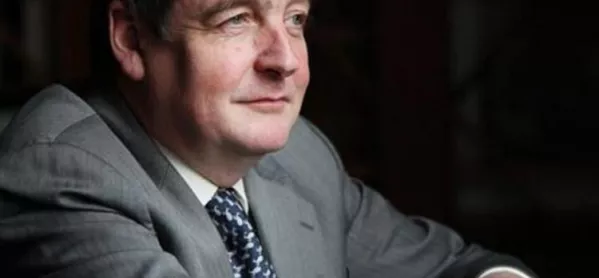- Home
- ‘The prevailing mood in the schools’ music community? Despair’
‘The prevailing mood in the schools’ music community? Despair’

On the day when the president of the United States suggested that American schools would be safer places if teachers carried concealed handguns, the problem I shall focus on seems trivial in comparison. Nonetheless, in UK education it is a matter of grave concern to those who care - and should be to everyone.
Thursday found me at publisher Rhinegold’s annual Music and Drama Education Expo at Olympia. Schools minister Nick Gibb was due to give the keynote speech, but couldn’t make it. These things happen: ministers are busy people and he was needed at the Commonwealth education ministers’ conference in Fiji.
Absence spared the minister some possible embarrassment, nonetheless. As I entered the auditorium where he was due to speak, on every seat there was a card proclaiming “Bacc for the future: help save creativity in schools”. It proclaimed the increasingly brilliant campaign: www.Baccforthefuture.com
Up for the fight
The other politician on the bill, who did turn up, was Lib Dem Baroness Bonham-Carter, a member of the House of Lords Select Committee for Digital, Culture, Media and Sports. She was certainly up for the fight, urging her audience to contact their MPs and exert any influence they could to ensure that government insistence on the EBacc doesn’t further squeeze creative subjects in schools.
Unsurprisingly at that event, her audience was receptive, so there was little disagreement. Questions and discussion broadened the topic to include consideration of diversity in the creative arts, and the problems of curricula and exam specifications that downplay or ignore it.
Even if there was broad agreement, I was struck by the contrast between that session’s sombre, not to say downbeat, mood - unsurprisingly, you may say, given the nature of the debate - and the buzz that suffused the Expo itself. The whole industry was there, every service, supplier and manufacturer you can imagine with a connection to music and drama education. Teachers, coaches and representatives of major arts institutions and colleges crowded the exhibition stands and the refreshment stalls - particularly where young musicians were performing. Noisy conversation, excitement and commitment abounded.
So which emotion was most strongly in evidence at that keynote session? Certainly there was anger: that was to be expected. But to my mind, the prevalent feeling was one of despair. Of course, there are always a few enthusiasts and visionaries who keep fighting the battles: overall there was a sense of ennui, of weariness in the face of endless struggle.
Mixed feelings about music
The Baroness put a brave face on it: this is a democracy, after all, and we are at liberty to lobby MPs, opinion-formers and policymakers. But, while manufacturing and high-tech seem to easily gain access to Downing Street and the ears of senior ministers, the creative industries and those involved in creative education appear unable to gain traction.
I came away with mixed feelings. It was great to soak up innovation going on in the hall. I’m long in the tooth, so for me there was wonder in the technical wizardry on show in so many stands, combining what I think of as traditional instruments with startling technological innovation.
But all that kit, all those amazing aids to creativity, will be underused and even obsolete if the thrust and focus of government policy - and consequent levels of investment - continue to downgrade the creative subjects. The EBacc is an obvious current peril: I fear still more the inexorable, pernicious policy-bias of successive governments towards the utilitarian.
You can shout all you like about the wealth generated by creative industries, about the investment needs to ensure that the UK remains a world leader in many aspects of music, dance, and film: those pleas fall on deaf ears.
As the saying goes, there are none so deaf as those that don’t want to hear.
Dr Bernard Trafford is a writer, educationalist and musician. He is a former headteacher of the Royal Grammar School, Newcastle, and past chair of HMC. He is currently interim headteacher of the Purcell School in Hertfordshire. He tweets @bernardtrafford
To read more of his columns, view his back catalogue
Want to keep up with the latest education news and opinion? Follow Tes on Twitter and like Tes on Facebook
Keep reading for just £1 per month
You've reached your limit of free articles this month. Subscribe for £1 per month for three months and get:
- Unlimited access to all Tes magazine content
- Exclusive subscriber-only stories
- Award-winning email newsletters



